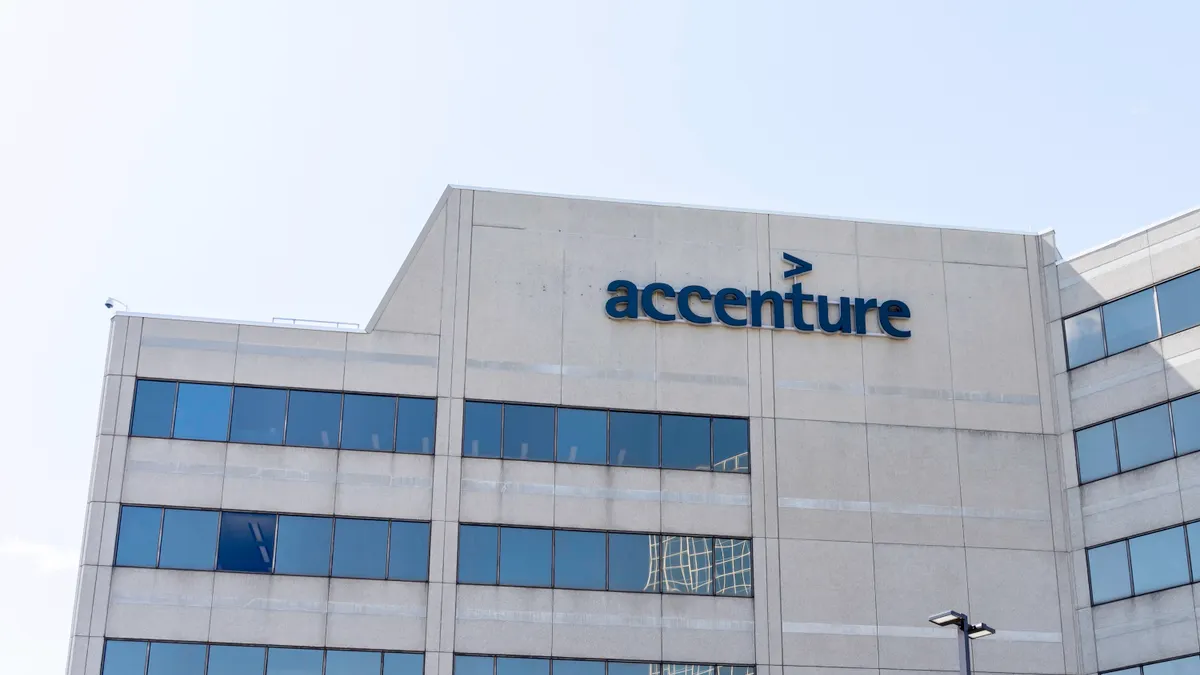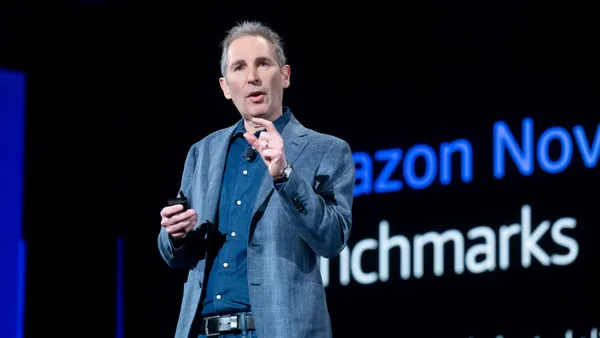Dive Brief:
- Accenture will fold five business units into one to focus more keenly on large-scale digital transformation projects, according to a Friday announcement. The IT consulting firm is fusing Strategy, Consulting, Song, Technology and Operations into a single business unit called "reinvention services" over the next two months.
- Accenture CEO of the Americas Manish Sharma will lead the new unit as chief services officer, effective Sept. 1. COO John Walsh will succeed Sharma as CEO of the Americas and the company’s chief information and asset engineering officer Rajendra Prasad will ascend to group chief executive of technology and CTO, replacing Karthik Narain, who is leaving the company.
- “These changes to our growth model will allow us to deliver that value and continue to scale our business by being an even stronger engine of reinvention that more rapidly delivers the power of Gen AI,” Accenture Chair and CEO Julie Sweet said in the announcement.
Dive Insight:
As enterprises reshape IT strategy to expedite generative AI adoption, executives are prioritizing comprehensive modernization efforts over individual system upgrades. Accenture’s realignment reflects a corresponding shift in spending patterns.
The company came into its current fiscal year anticipating enterprise cutbacks to discretionary budget items, Sweet said Friday, during the company’s Q3 2025 earnings call.
“In every boardroom and every industry, our clients are not facing a single challenge,” said Sweet. “They are facing everything at once: economic volatility, geopolitical complexity [and] major shifts in customer behavior.”
While the triple threat to business-as-usual hasn’t dampened AI enthusiasm, uncertainty surrounding U.S. trade policy has curbed IT spend.
In February, Forrester forecasted global tech spend would grow 5.6% this year to $4.9 trillion in 2025, driven by cloud, cyber and generative AI investments. Gartner estimates that generative AI-related projects alone will consume $644 billion this year — a 76% year-over-year bump — as vendors race to deploy the technology across enterprise software services.
IT teams felt the sting of President Donald Trump’s plans to implement steep and sweeping tariffs, announced in April. Cost management topped the list of tech leader concerns, according to a Boston Consulting Group survey published in May. Many organizations were already pausing discretionary IT investments, the firm found.
Project postponements hit Accenture’s bottom line. Despite quarterly revenue increasing 8% year over year to $17.7 billion, the firm’s new bookings fell 6% to $19.7 billion, according to a financial report published Friday.
Sweet credited a prescient pivot to large enterprise clients with maintaining steady revenue growth. Since prioritizing transformation services in its 2022 fiscal year, the company has racked up hundreds of bookings worth $100 million or more quarterly, which is Accenture’s “proxy for reinvention,” she said.
The company booked 30 such clients in the three months ending May 31, according to Sweet. Generative AI projects — a cornerstone of Accenture’s strategy — accounted for $1.5 billion in Q3 bookings and $700 million in revenues.
“Gen AI alone is just a tool — the work needed to use Gen AI to create value at scale is substantial,” Sweet said. “We are working with our clients using all of our reinvention expertise, our deep understanding of how to build a cognitive brain for the enterprise and our deep understanding of data, every function in the enterprise, industries and change as well as our own experience reinventing Accenture.”
















